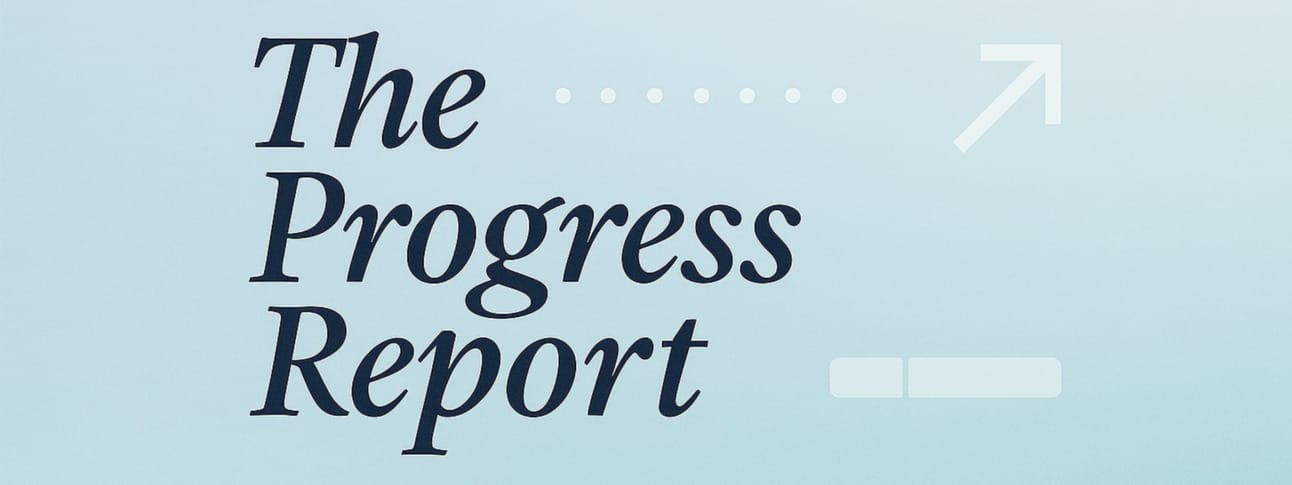
May 6, 2025
In partnership with

Ever stared at your to-do list, just to feel… absolutely nothing?
Not overwhelm. Not excitement. Just a flat emptiness, knowing you have months of tedious work ahead. The kind where progress is measured in small improvements that very few (if any) people will notice.
If reading that made you feel a healthy dose of dread, you’re in good company. Most entrepreneurs are way more comfortable in chaos than stability—whether they want to admit it or not.
So, today, I’m tackling the silent business killer: boredom.
In this newsletter:
An overnight success… after seven years of hard work
How to get through the tedium of building a business
Weekly Insight

In 2017, Eric Simons co-founded StackBlitz with a clear goal: make web development happen entirely in the browser.
But, as you well know, clear ≠ easy.
To pull it off, they needed to invent “WebContainers”—essentially an operating system that lets Node.js run natively in the browser. If that sounds complicated, that's because it was. Painfully so.
For nearly seven years, Simons and his team labored in relative obscurity, solving technical problems most developers didn't even know existed.
Progress wasn't measured in customer testimonials, funding rounds or flashy headlines. It came in the form of incremental improvements to technology that (at the time) only a handful of developers truly understood or appreciated.
The work was repetitive. Testing was monotonous. And most days ended with a list of issues longer than the one they started with.
Honestly, it must’ve been boring as hell.
Until it wasn’t.
In October 2024, Simons and his team launched Bolt: a web-based AI coding agent built on their mature WebContainer technology. The response was explosive.
$20 million in ARR in just two months. Within five, it was $40M. The tech world called it an overnight success.
But remember: an overnight success that took seven years to build.
Of course, their success resulted in a flood of new market entrants. But they had something their new competitors didn’t: seven years of knowledge, earned by solving hard, tedious problems that nobody else had the patience to tackle.
That, right there, is the entrepreneurial paradox: the most exciting breakthroughs emerge from the most mundane periods of work.
Your willingness to embrace the boredom could be the exact thing that separates your “overnight success” from the thousands of abandoned projects gathering dust in the startup graveyard.
The real secret to success is falling in love with the boredom of doing the work.
Intent to Action
We’re in the era of the solopreneur. There are so many tools available that a single person can do the work of many. It’s awesome.
But, it can be lonely. Ergo, boring.
And this, my friend, is where most startups fail. Not because the founders lack skill or vision, but because grinding through tedium is genuinely hard.
Traditional productivity advice treats this as a simple willpower problem, and gives lukewarm suggestions to solve it: “celebrate small wins,” “set a timer,” “install a website blocker.”
Yet, they don’t actually solve the problem. And, if I’m being honest, of course they don’t. This is a deeply human challenge, requiring human solutions.
If you’re bored, try these three strategies:
1. Find an accountability partner
The most effective way to push through monotonous work is having an accountability partner. Aka, someone who's expecting you to show up.
Find someone who's also navigating a boring-but-critical phase in their business.
Schedule regular sessions where you work side by side (virtually or in person) on your respective tedious tasks. No need for constant interaction—just the quiet presence of another person in the trenches.
When the session ends, each person shares what they accomplished and what they plan to do next.
2. Question your escape hatches
When boredom hits hard, entrepreneurs often mistake restlessness for intuition. “Maybe this isn't the right direction” becomes the perfect justification to abandon ship.
Before you pivot away from sameness, have a conversation with someone who'll challenge your thinking. Not to talk you out of it, per se, but to help you distinguish between necessary evolution and simple escapism.
The question isn't “Is this boring?” (of course it is). The question is “Is this necessary for where I'm ultimately going?”
3. Externalize your patience
Seven years of grinding on WebContainers would break most people. What likely kept Simons and his team going was each other—witnessing each other's persistence and reflecting it back.
If you don't have a team, create external structures that serve the same function.
Commit publicly to completing specific tasks.
Document your progress, even when it feels insignificant.
Find communities where persistence is celebrated as much as breakthroughs.
Importantly, remember that the point isn't accountability through guilt. It's to create external evidence of your forward motion, for you to refer back to when your internal motivation falters.
Closing Thought
Anyone can show up when it's exciting. The ability to continue when it's not is what separates the businesses that launch from the ones that last.
This week was all about connecting with peers. Next week, we’re going to cover connecting with mentors—who, what, why and when.
See you then.
